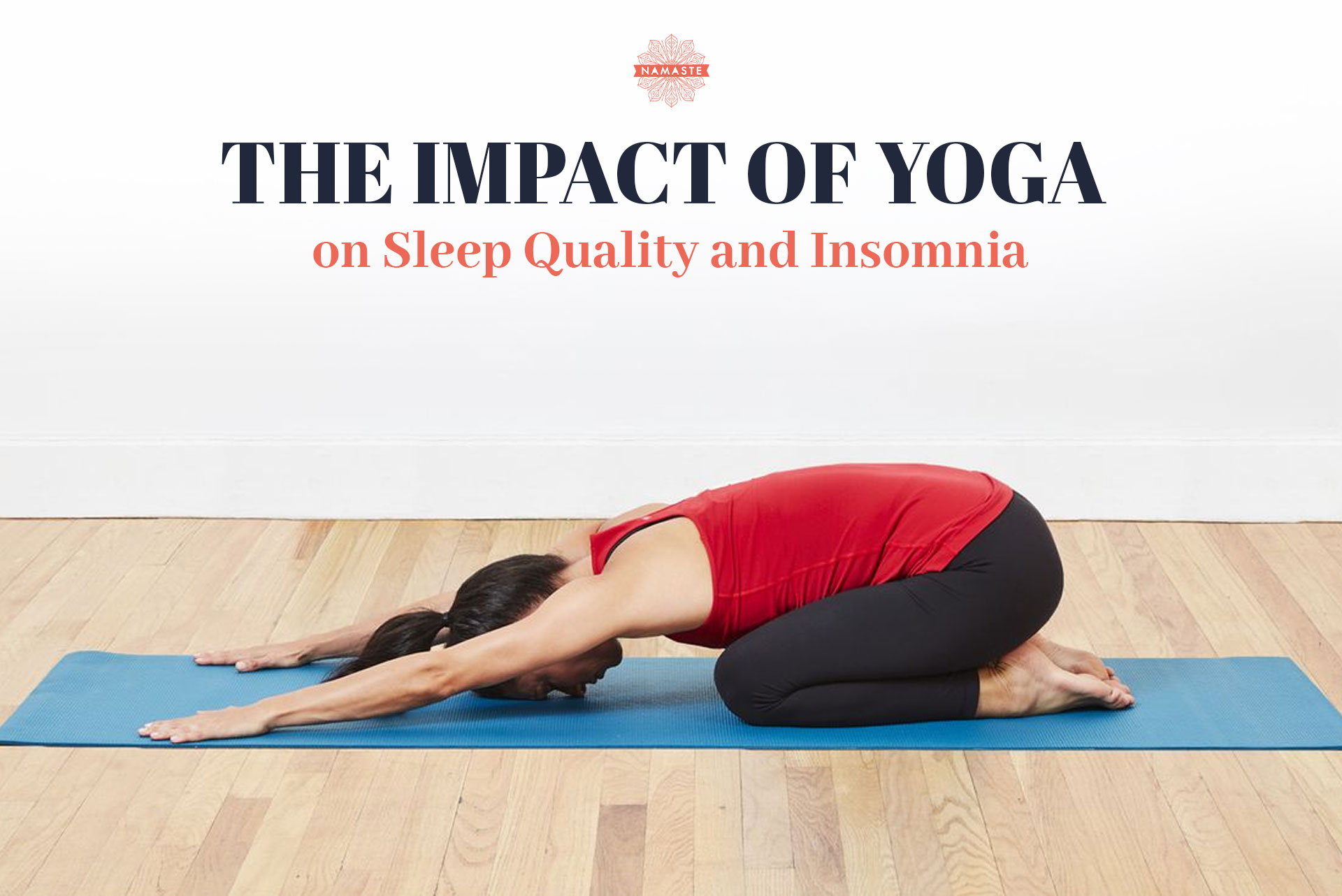
In the realm of holistic well-being, the ancient practice of yoga emerges as a powerful ally in the battle against insomnia. Far beyond a physical exercise regimen, yoga is a comprehensive system that unites mind, body, and spirit. Its profound impact on sleep quality and the alleviation of insomnia lies in its ability to create a harmonious interplay between breath, movement, and mindful awareness. In this exploration, we delve into the symbiotic relationship between yoga and insomnia, uncovering the transformative journey from restlessness to inner serenity.
What is Insomnia?
Insomnia, a common sleep disorder, manifests as difficulty falling asleep, staying asleep, or experiencing restorative sleep. It significantly impacts an individual’s overall well-being, leading to daytime fatigue, impaired cognitive function, and various health concerns. Understanding the causes of insomnia is crucial for effective management and treatment. The factors contributing to insomnia are diverse and often interconnected, ranging from lifestyle choices to underlying medical conditions.
How can Yoga help?
The Breath as the Gateway: At the heart of the yoga-insomnia connection lies the breath. Pranayama, the practice of breath control, becomes the gateway to tranquility. Many individuals grappling with insomnia find themselves trapped in a cycle of racing thoughts and restlessness. The breath, however, serves as a constant anchor to the present moment. Techniques like diaphragmatic breathing or alternate nostril breathing invite a conscious awareness of each inhale and exhale, gently guiding the mind away from the incessant chatter and into the serene realm of the breath.
Asanas: Physical Expression of Calm: Yoga postures, known as asanas, offer a unique blend of physical movement and stillness, creating a holistic approach to combating insomnia. The gentle stretching and controlled movements involved in asana practice release physical tension stored in muscles and joints. Poses such as Child’s Pose, Legs Up the Wall, and Corpse Pose are particularly soothing, encouraging a state of relaxation conducive to a restful night’s sleep. By engaging in a sequence of calming asanas, individuals can signal to the body that it is time to unwind, paving the way for a seamless transition into sleep.
Yoga Nidra: Guided Journey to the Subconscious: Yoga Nidra, often referred to as “yogic sleep,” is a transformative practice that guides individuals into a state of conscious relaxation. In the realm between wakefulness and sleep, Yoga Nidra invites practitioners to explore the subtle realms of the subconscious mind. This guided journey serves as a potent tool for those grappling with insomnia by providing a structured method to release tension, calm the mind, and access deeper states of relaxation. As Yoga Nidra unfolds, the body and mind harmonize, creating an inner landscape conducive to the embrace of serene, uninterrupted sleep.
Mindfulness Meditation: Quieting the Mental Storm: Insomnia is often exacerbated by an overactive mind. Racing thoughts, worries, and anxieties create a mental storm that hinders the transition into restful sleep. Mindfulness meditation, a core aspect of yoga, becomes the antidote to this mental turbulence. By cultivating non-judgmental awareness of the present moment, individuals can observe thoughts without becoming entangled in them. This practice fosters a sense of detachment from the mental chatter, creating space for the mind to settle into a state of calmness essential for a restorative night’s sleep.
Stress Reduction: Unwinding the Body-Mind Knot: Stress, whether originating from daily life challenges or deep-seated emotional tension, is a common contributor to insomnia. Yoga, with its emphasis on conscious relaxation and stress reduction, addresses this root cause. As individuals engage in asanas and breathwork, the body’s stress response is gradually downregulated. The practice of yoga encourages the release of tension stored in the muscles, promoting physical relaxation that signals to the nervous system that it is safe to enter a state of rest. This unwinding of the body-mind knot becomes a transformative aspect of yoga’s impact on insomnia.
Creating a Sleep-Inducing Environment: The practice of yoga extends beyond the mat into the sleep environment itself. Simple rituals, such as gentle pre-sleep stretches or a brief meditation, become an integral part of a bedtime routine. By infusing these practices into the moments leading up to sleep, individuals create a transition from the active demands of the day to the serene embrace of the night. This intentional integration of yoga into the sleep routine serves as a powerful cue to the body that it is time to unwind, promoting a restful and rejuvenating sleep experience.
Holistic Wellness: Beyond the Mat and into Life: The impact of yoga on insomnia transcends the physical postures and breathwork experienced on the mat. It becomes a holistic approach to wellness that extends into all facets of life. The principles of mindfulness, balance, and conscious living cultivated through yoga practice permeate daily existence. As individuals adopt a yogic mindset, they become attuned to the interconnectedness of their choices, recognizing that lifestyle, diet, and mental well-being all play pivotal roles in the quality of their sleep.
Embracing Stillness in Savasana: Savasana, or Corpse Pose, serves as a culmination of the yoga practice and a bridge to profound stillness. In this final resting posture, practitioners surrender to a state of complete relaxation. The body, having moved through a sequence of asanas and mindful breathwork, now absorbs the benefits of the practice in stillness. Savasana becomes a sacred moment of surrender, inviting the practitioner to release physical and mental tension, creating an internal environment conducive to a serene, rejuvenating slumber.
The Journey from Insomnia to Inner Serenity: In the profound interplay between yoga and insomnia, individuals embark on a transformative journey. From the restlessness of sleepless nights to the inner serenity cultivated through mindful breath, calming asanas, and conscious relaxation, the path unfolds. Yoga becomes a trusted companion, offering solace to those in search of a respite from the demands of the day and a sanctuary for the restless mind.
As individuals integrate yoga into their lives, insomnia becomes not merely a challenge to overcome but an opportunity for profound self-discovery and healing. The breath, the postures, and the meditative aspects of yoga converge, creating a symphony of serenity that transcends the limitations of sleepless nights. In this holistic approach, insomnia is not merely treated; it becomes a portal to inner serenity – a gateway to a life lived with mindfulness, balance, and a deep connection to the inherent tranquility that resides within.
Join our upcoming Yoga Teacher Training in Rishikesh at Vinyasa Yoga Ashram to experience and absorb these practices in your daily life. The daily routine of the course, sets a disciplined body clock which aids in slow and steady recovery of any discomforts.

